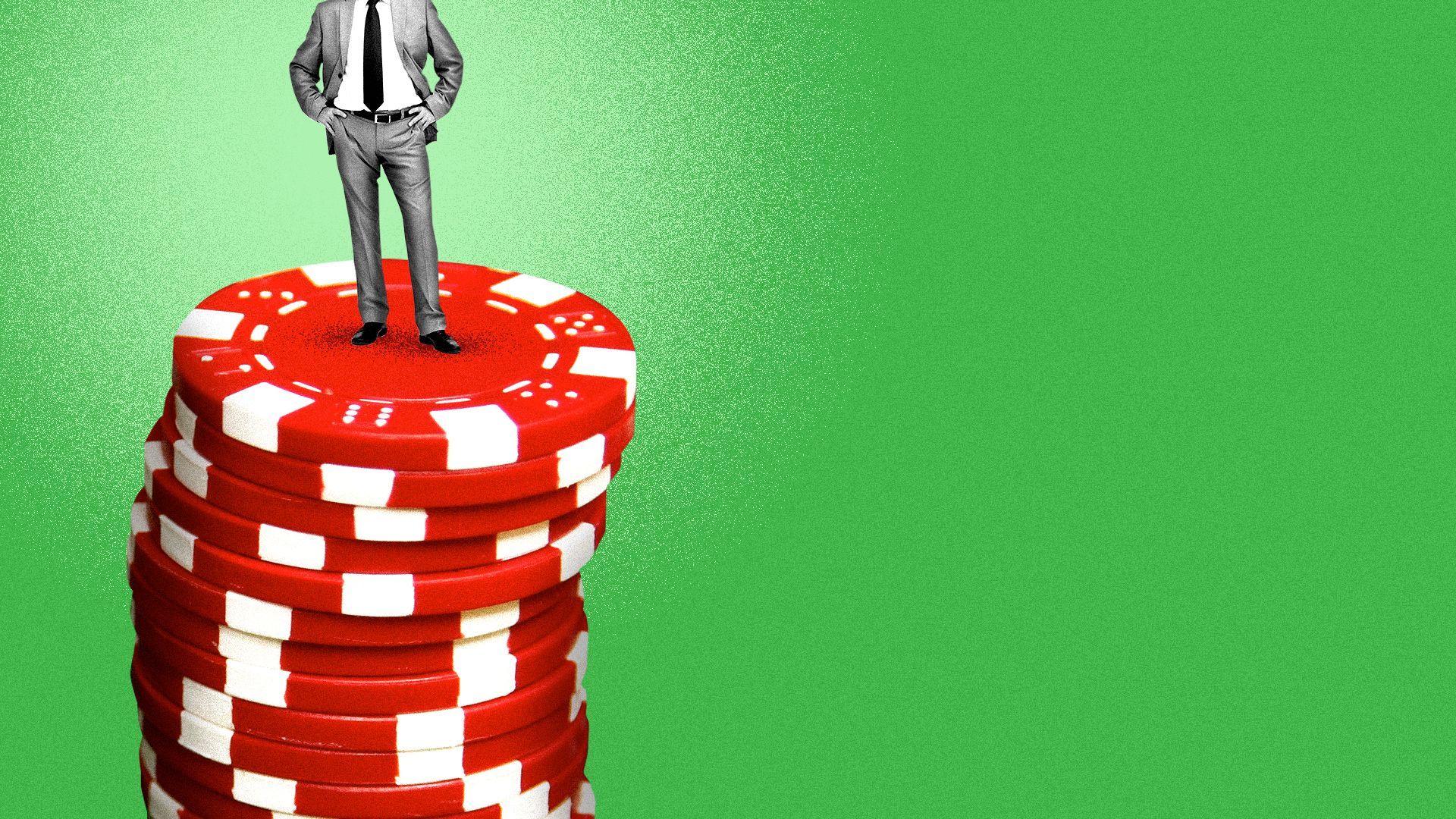Illustration: Aïda Amer/Axios
Most of what I know as CEO, I learned from being a reporter. And most of what I know about reporting, I learned from… playing poker.
Why it matters: I don't toss around a lot of unconventional or controversial parenting advice — other than encouraging kids to gamble with real humans … for real money … at real poker tables.
Disclaimer: Axios does not condone or encourage illegal underage betting.
But I do! OK, I'm talking about playing for mere pennies if you're young or on a tight budget.
- The poker table is a classroom filled with invaluable life lessons:
1. You learn to read people.
“Show me your eyes, and you may as well show me your cards.”
— Doyle Brunson, famous poker champ
If you sit around a table long enough, you'll start to read people's eyes and twitches, their tendencies and styles, their strengths and weaknesses. Think of poker as a fun way to sharpen your emotional intelligence.
2. You learn luck.
“Poker is 100% skill and 50% luck.”
— Phil Hellmuth, another famous poker champ
So much of success flows from getting the right break at the right moment — and being prepared to pounce on it.
- Poker shows you how skill can help you win. But only by riding the rhythms of luck can you win big.
3. You learn to recognize fact patterns.
“Life, like poker, has an element of risk. It shouldn’t be avoided. It should be faced.”
— Actor Edward Norton
Most people are predictable if you watch closely enough. With time, you can almost anticipate how people will respond in good or bad situations — just like they do with good or bad cards.
- And while the 52 cards are wildly unpredictable, there is a set number with a concrete hierarchy and a knowable probability of success or failure. Same for most big life decisions with uncertain variables.
4. You learn to navigate high pressure.
There's something about competition, amplified by a few pennies at stake, that messes with your mind. Your blood pressure spikes. Competing impulses race through your head. Instinct grabs hold.
- This is most hands of poker — and most tense moments in life. Your brain learns to navigate these moments through trial and error.
5. You learn when to quit.
“Know when to hold 'em. Know when to fold 'em. Know when to walk away. And know when to run.”
— Kenny Rogers, “The Gambler”
The biggest mistake poker players make is the same one we all make in relationships, jobs and bad habits — not knowing when to quit.
- Sometimes life deals us bad cards. Sometimes we play good cards poorly. Recognizing your own weaknesses and tendencies helps limit the number of dumb moves you make.






